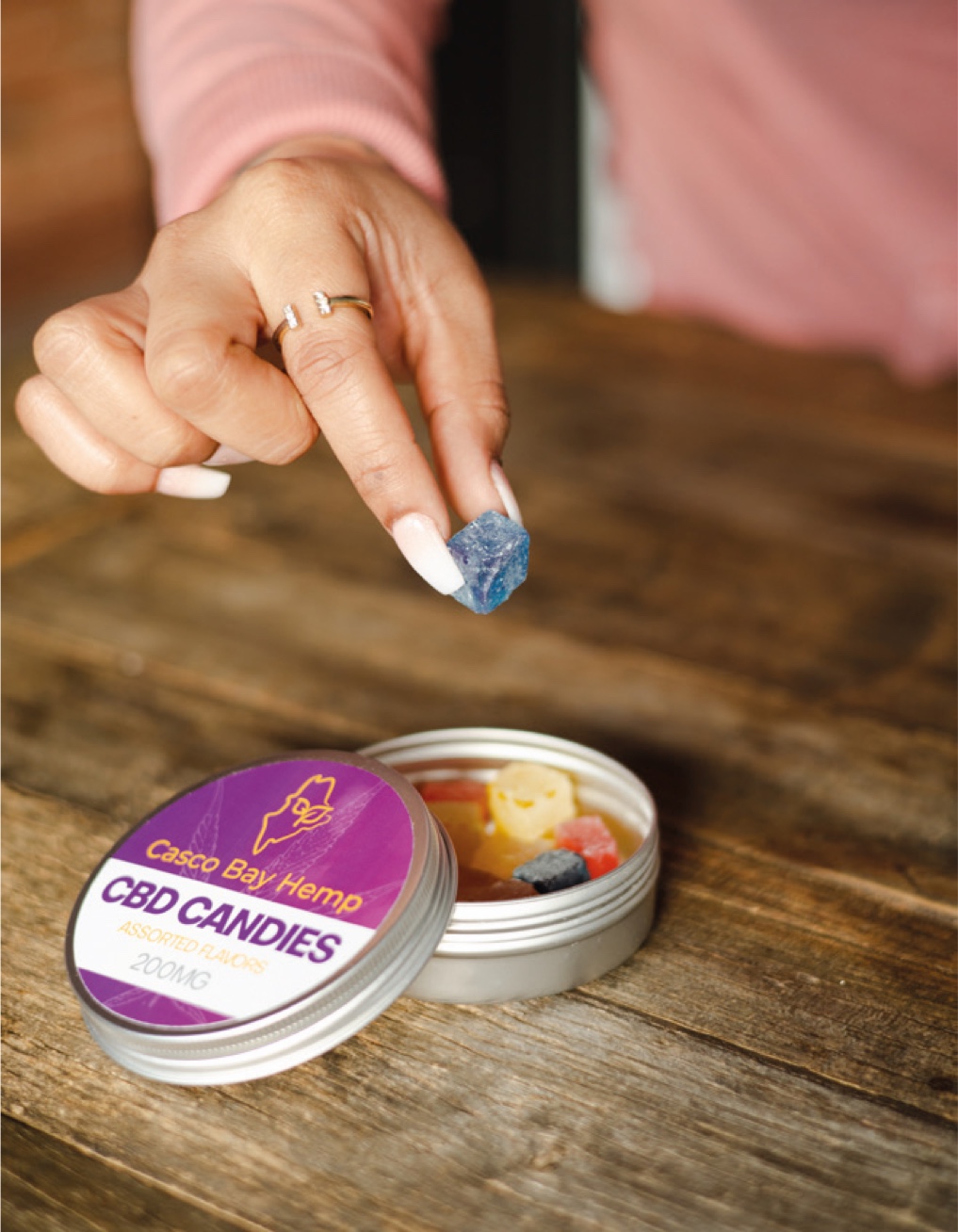COLUMN: ASK THE CHEMIST
AI Formulators are coming
are you ready?
KEYWORDS —
AI Formulators,
ChatGPT and Cosmetic Chemists,
AI Limitations,
Tools for Formulators,
AI Hallucinations.
Abstract
Studies of major depressive disorder have been correlated with reduced Lactobacillus and Bifidobacteria and symptom severity has been correlated to changes in Firmicutes, Actinobacteria, and Bacteriodes. Gut microbiota that contain more butyrate producers have been correlated with improved quality of life (1).
A study in healthy women providing probiotic yogurt for four weeks showed an improvement in emotional responses as measured by brain scans (2). A subsequent study by Mohammadi et al. (3) investigated the impacts of probiotic yogurt and probiotic capsules over 6 weeks and found a significant improvement in depression-anxiety-stress scores in subjects taking the specific strains of probiotics contained in the yogurt or capsules. Other studies with probiotics have indicated improvements in depression scores, anxiety, postpartum depression and mood rating in an elderly population (4-7).
Other studies have indicated a benefit of probiotic supplementation in alleviating symptoms of stress. In particular, researchers have looked at stress in students as they prepared for exams, while also evaluating other health indicators such as flu and cold symptoms (1). In healthy people, there is an indication that probiotic supplementation may help to maintain memory function under conditions of acute stress.
“
“A study in healthy women providing probiotic yogurt for four weeks showed an improvement in emotional responses as measured by brain scans”
It is undeniable that Artificial Intelligence (AI) is poised to disrupt nearly every industry and the cosmetic industry is no exception. As a cosmetic chemist who has been in this industry for more than 30 years, I've seen a number of promising trends come and go with little real impact on my job. Sure epigenetics or the microbiome are interesting areas of science, but they haven't actually changed the formulator's job much. We still use the same occlusives, humectants, and emollients to make skin care that people want to use.
So, when AI came on the scene I was skeptical. It seemed more like a marketing gimmick than something that would really impact formulators. And the early entries on the market only seemed to reinforce my belief. This pertains to companies that collected quiz data and maybe skin or hair measurements, then put the information in an “AI” to predict precisely the products that are perfect for the consumer.
As a formulator, I know whether a product is good for a consumer or not is much more complicated than an AI is ever going to be able to predict. I always wondered how would knowing a consumer thought they had sensitive skin would impact the amount of petrolatum put in a formula? Honestly, tools like these are little more than marketing gimmicks as are the “customized” formulas that result from using them.
There are also a number of formulator-focused tools. These are meant to help cosmetic chemists choose chemicals, track ingredients, solve stability problems, and create formulas. While these tools offer some potential benefits, they also face limitations due to the industry's secretive nature and data scarcity. It's difficult to create a good stability AI prediction tool with the limited amount of stability / formula data freely available. And it's unlikely that companies want to share their formula information with everyone else in the industry.
But chatbots, these tools are different.
Chatbot Chemists?
I first heard about Chatbots, and specifically ChatGPT, back in February of last year. This is when version 3.5 was introduced generally to consumers. The premise of these tools is simple. You start a discussion with them and they continue it. The responses they give are powered by a Large Language Model that is really good at predicting the next word in a sentence. When properly trained, these tools can give responses that seem amazingly accurate.
Of course, I was curious. The first thing I did was to ask ChatGPT to give me the formula for a shampoo. In fact, I typed “Give me a formula for a shampoo.” And it did exactly that. Here is the exact formula it told me.
- Pure Castile Soap - 1/2 cup
- Distilled Water - 1/2 cup
- Jojoba Oil - 2 tablespoons
- Essential oils - 30 drops
Now, as a professional cosmetic chemist, this made me laugh. First, it gives measurements in cups and tablespoons. And basing a shampoo on soap and jojoba oil? That's ridiculous. I was not impressed. It wasn't surprising to me because the chatbot was trained on data from the Internet and most of the formulation information there is created by DIY formulators who make products in their kitchens.
Getting Improved Responses
But I learned that a chatbot like this is a tool and there are better ways to use it. Rather than simply asking it for a shampoo formula, you get better results by giving more information about what you want. If you tell it that you are a professional chemist and that you want a formula that would be suitable for producing in a factory, then it gives a more reasonable response.
When I specifically started the conversation as “I am a professional cosmetic chemist. Please give me a shampoo formula with all the ingredients listed in terms of percentages. Additionally, list the manufacturing procedure and the appropriate specifications.”
With this input, I was amazed at the results. The formula that it gave me resembled a real formula on the market.
- Water – 60 - 70%
- Primary Surfactant (SLS or SLES) - 10 - 15%
- Secondary surfactant (Cocamidopropyl Betaine) – 5 - 10%
- Thickeners (Hydroxypropylmethyl cellulose) – 0.5 - 1%
- Conditioning agents (Polyquaternium-7) - 2-5%
- Humectants (Glycerin) - 2-5%
- Preservatives (Phenoxyethanol) – 0.5 - 1%
- pH Adjuster (citric acid) - qs
- Fragrance – 0.5 - 2%
- Special additives 1-5%
Now, this is by no means a finished formula and I disagree with some choices. For example, glycerin should not be used at a high level in shampoos! And Polyquaternium 7 at 2% is too high in my opinion. But these are all things that can be worked out at the bench. The point is that the AI can come up with a reasonable starting formula. And if you tell it specific ingredients in your formula, it can be even more useful.
If you are just starting out in the lab or are asked to formulate a type of product you don't have a lot of familiarity with, this AI tool can be an amazing help.
Uses of AI for Cosmetic Chemists
Beyond getting starting formulas, some other specific tasks that AI can be used for include:
Learning and Research - AI tools like Elicit.com can simplify complex research papers, making them more accessible. Or you can just put the abstract in a chatbot and have it explain it in more simple terms.
Problem-Solving - AI can suggest potential solutions to formulation or stability issues. Whether it is new test methods, stability problems, or production challenges, AIs are able to brainstorm any number of potentially useful options.
Data Analysis - AI can help summarize and analyze large data sets, aiding in decision-making. You simply enter your data into the chatbot AI and it will find patterns for you.
New Product Ideas – Chatbots are really good at coming up with hundreds of ideas for products. Of course many of these are bad ideas and not workable, real-world products, but it can also come up with some interesting products that could be successful in the marketplace. The ideas it creates are certainly as good as you get from an all-day, off-site group brainstorming session.
The Limitations and Cautions of AI
Of course, AIs are not perfect yet. And while they offer numerous advantages, it is not without its problems. You should be aware of the following whenever you use an AI assistant.
AI Hallucinations - AI can often provide inaccurate or misleading information. It is trained on information from the Internet. And often, the Internet is just wrong. So, if you are trying to use it to learn new concepts, just realize some of the information it tells you is incorrect. Always double check facts. I would note that while this is a significant drawback in using AI, a similar thing happens when learning from people. Individuals can present misinformation as fact just as readily as an AI.
Data Privacy - AI tools use your data when responding to other users. Therefore, sensitive company information should not be shared with them. ChatGPT and other AI products don't keep secrets!
Mathematical Limitations - The way that AI chatbot works is through a Large Language Model. And as such, they don't really know what they are answering. They just give you a good prediction of what word should come after another. This means that it is not reliable for complex mathematical calculations.

The Limitations and Cautions of AI
Of course, AIs are not perfect yet. And while they offer numerous advantages, it is not without its problems. You should be aware of the following whenever you use an AI assistant.
AI Hallucinations - AI can often provide inaccurate or misleading information. It is trained on information from the Internet. And often, the Internet is just wrong. So, if you are trying to use it to learn new concepts, just realize some of the information it tells you is incorrect. Always double check facts. I would note that while this is a significant drawback in using AI, a similar thing happens when learning from people. Individuals can present misinformation as fact just as readily as an AI.
Data Privacy - AI tools use your data when responding to other users. Therefore, sensitive company information should not be shared with them. ChatGPT and other AI products don't keep secrets!
Mathematical Limitations - The way that AI chatbot works is through a Large Language Model. And as such, they don't really know what they are answering. They just give you a good prediction of what word should come after another. This means that it is not reliable for complex mathematical calculations.
The Evolving Role of Cosmetic Formulators
With the introduction of AI into society in general, the job of a cosmetic formulator is going to change significantly. I know some in my field will want to ignore and dismiss these tools but they do so at their peril. It's imperative to adapt to these changes to avoid becoming obsolete. AI is not just an emerging trend; it's a tool reshaping our approach to formulation and product development. It is not going away. This means that to keep up in this industry you need to learn to use AI to remain competitive in your career.
The Future of AI in Cosmetic Chemistry
At present, AI is not a replacement for human chemists. It still can't reliably mix chemicals together and make emulsions. However, it is an important tool that can enhance their productivity. This may change over time, but at present the most important thing for formulators in all fields to do is to learn how to use these tools to improve speed and efficiency in the job. The people who do will best thrive in the inevitably AI powered future.
Contact and Further Resources
For more insights and a list of recommended AI tools, feel free to contact me at perry@chemistscorner.com.
The Future of Metaverse Personal Care
The future of sensory experiences in the metaverse is a tantalizing frontier poised for remarkable growth and innovation. As technology continues to advance, we can anticipate increasingly lifelike simulations of texture, scent, and other sensory elements, bringing us closer to replicating the tangible sensations of the physical world in the digital realm. Haptic feedback and scent-emitting technologies are likely to become even more sophisticated, offering a truly immersive multisensory experience. Furthermore, as metaverse personal care continues to evolve, it will further blur the lines between virtual and physical beauty, opening up exciting possibilities for customization, personalization, and holistic self-care. To fully embrace this transformative journey, we must stay engaged, explore, and actively participate in shaping the evolving metaverse landscape. As consumers and creators alike, our collective input and imagination will continue to drive the innovation that defines the future of sensory-rich personal care experiences in the metaverse.

Studies of major depressive disorder have been correlated with reduced Lactobacillus and Bifidobacteria and symptom severity has been correlated to changes in Firmicutes, Actinobacteria, and Bacteriodes. Gut microbiota that contain more butyrate producers have been correlated with improved quality of life (1).
A study in healthy women providing probiotic yogurt for four weeks showed an improvement in emotional responses as measured by brain scans (2). A subsequent study by Mohammadi et al. (3) investigated the impacts of probiotic yogurt and probiotic capsules over 6 weeks and found a significant improvement in depression-anxiety-stress scores in subjects taking the specific strains of probiotics contained in the yogurt or capsules. Other studies with probiotics have indicated improvements in depression scores, anxiety, postpartum depression and mood rating in an elderly population (4-7).
Other studies have indicated a benefit of probiotic supplementation in alleviating symptoms of stress. In particular, researchers have looked at stress in students as they prepared for exams, while also evaluating other health indicators such as flu and cold symptoms (1). In healthy people, there is an indication that probiotic supplementation may help to maintain memory function under conditions of acute stress.
References and notes
- Sparkes, M. (2021). What is a metaverse.
- Woo, J. H., & Kim, S. I. (2020). A study on User experience of Virtual Beauty Makeup Applications. Journal of Digital Convergence, 18(11), 459-464.
- Spence, C. (2022). Multisensory contributions to affective touch. Current Opinion in Behavioral Sciences, 43, 40-45.
- Crofton, E. C., Botinestean, C., Fenelon, M., & Gallagher, E. (2019). Potential applications for virtual and augmented reality technologies in sensory science. Innovative Food Science & Emerging Technologies, 56, 102178.
- Zhang, T., Wang, W. Y. C., Cao, L., & Wang, Y. (2019). The role of virtual try-on technology in online purchase decision from consumers’ aspect. Internet Research, 29(3), 529-551.
- Panagiotakopoulos, D., Marentakis, G., Metzitakos, R., Deliyannis, I., & Dedes, F. (2022). Digital scent technology: Toward the internet of senses and the metaverse. IT Professional, 24(3), 52-59.

